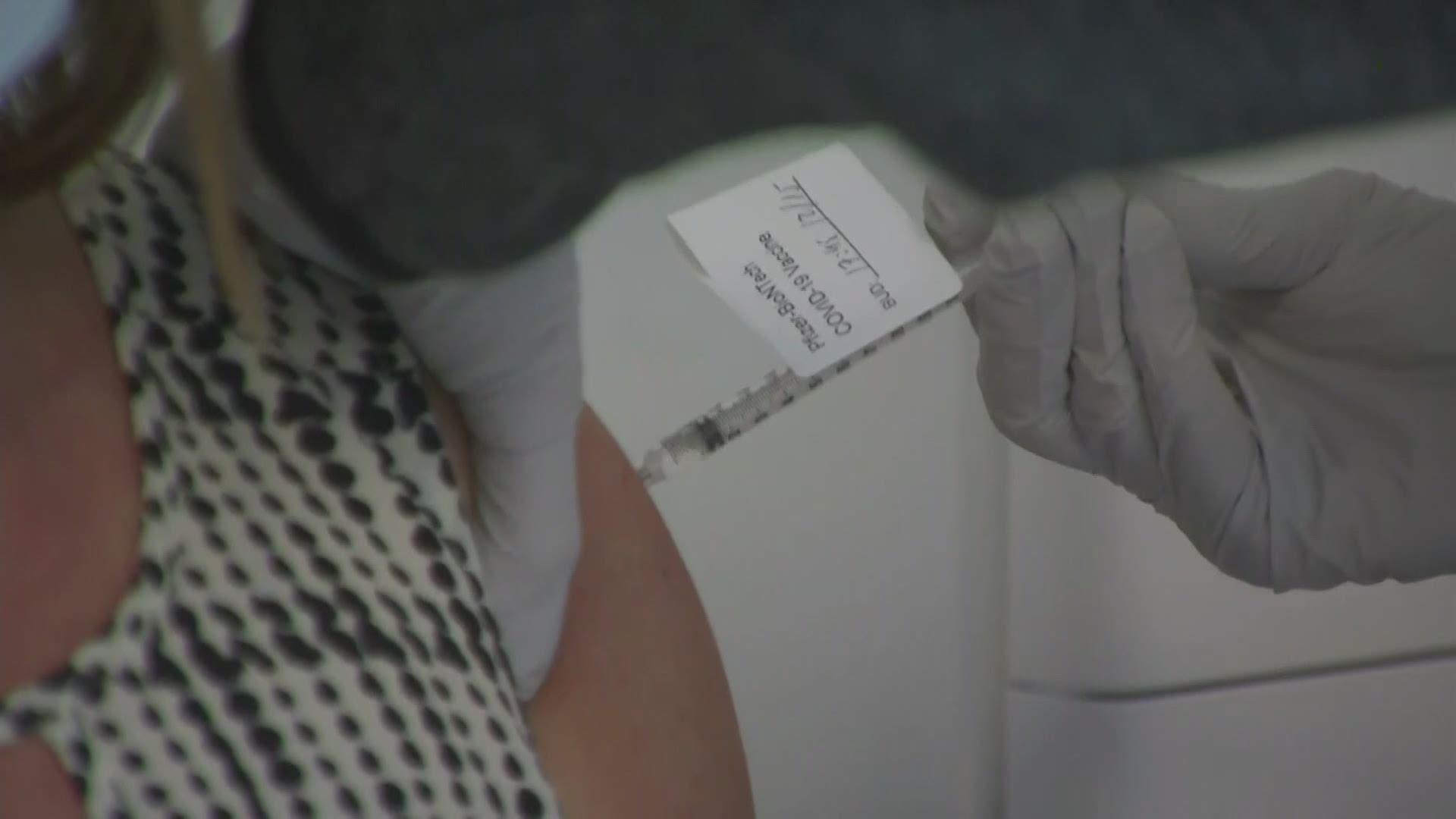SOUTH PORTLAND, Maine — As frontline health workers and seniors in nursing homes and assisted living centers continue to get vaccinated against COVID-19, older Mainers living at home will have to wait a while longer.
People 75 and older and essential frontline workers are next in line, possibly in late January or early next month.
But a number of older patients are worried about side effects and if the vaccine will protect those at higher risk for the virus.
More than 1,000 reports of side effects involving those receiving a COVID-19 vaccine have been logged with the Centers for Disease Control and Prevention. The most common reported symptoms, headaches, dizziness, and nausea.
Dr. John Alexander, the Chief Medical Officer of Central Maine Healthcare said the hospital system is providing frontline workers with the second booster this week.
"We have vaccinated tens of thousands already in the state of Maine, health care workers, while we have seen a few serious reactions," Dr. Alexander said.
According to the CDC, there have been a small number of serious reactions, including severe abdominal pain, seizures, breathing problems, breathing problems, and stroke like symptoms. But experts say out of the nearly 6 million doses given across the country, these adverse events are still very rare.
Patients 75 and older who are considered at higher risk for COVID-19 could get the vaccine later this month or in early February. But many still worry about potential side effects and if the shot will affect chronic health conditions or compromised immune systems.
Sarah Joakim's father Dick Dow came down with pneumonia last month. But the 91-year-old fought back and recovered. Dow, a resident who lives a Pinnacle Health and Rehab was scheduled to be vaccinated this week.
"That was my mom's biggest concern, would he have any contraindications," Joakim said.
Dow did receive the shot and so far, he has not had any reactions. Sarah is also worried about her father's mental health and hopes the extra layer of protection will eventually allow more in-person visits and hugs with her dad.
The Centers for Disease Control and Prevention keeps track of these incidents through VAERS, the Vaccine Adverse Event Reporting System. Anyone is able to report adverse reactions, from providers, patients, and family members.
Information on COVID-19 vaccines from the CDC can be found here.

